What do you want to be when you grow up?
 A student waves from the cockpit of a Coast Guard boat during Edgecomb Eddy’s career day March 29. FRITZ FREUDENBERGER/Boothbay Register
A student waves from the cockpit of a Coast Guard boat during Edgecomb Eddy’s career day March 29. FRITZ FREUDENBERGER/Boothbay Register
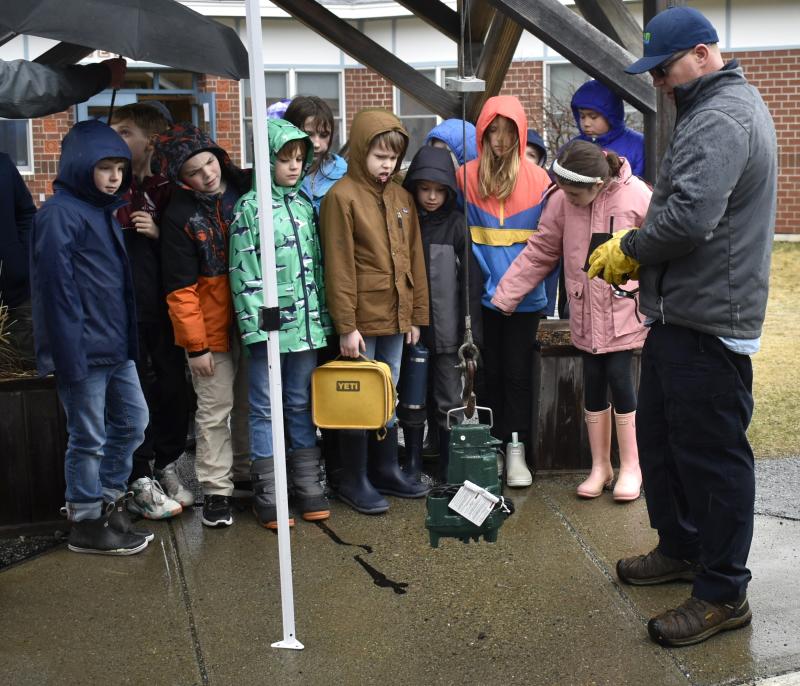 Students learn about sump pumps from Brunswick Sewer Department. FRITZ FREUDENBERGER/Boothbay Register
Students learn about sump pumps from Brunswick Sewer Department. FRITZ FREUDENBERGER/Boothbay Register
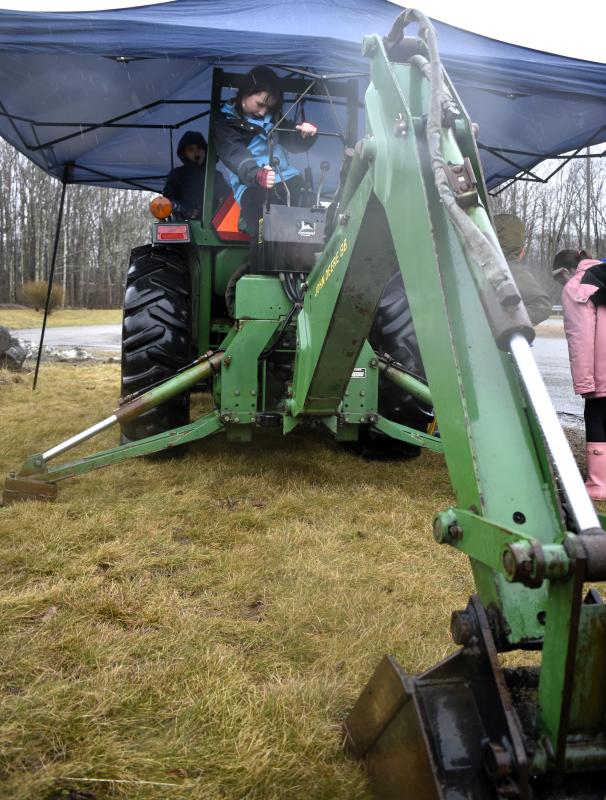 A Maine Bureau of Parks and Lands tractor was a hit. FRITZ FREUDENBERGER/Boothbay Register
A Maine Bureau of Parks and Lands tractor was a hit. FRITZ FREUDENBERGER/Boothbay Register
 The panelists at Edgecomb Eddy School’s career day. FRITZ FREUDENBERGER/Boothbay Register
The panelists at Edgecomb Eddy School’s career day. FRITZ FREUDENBERGER/Boothbay Register
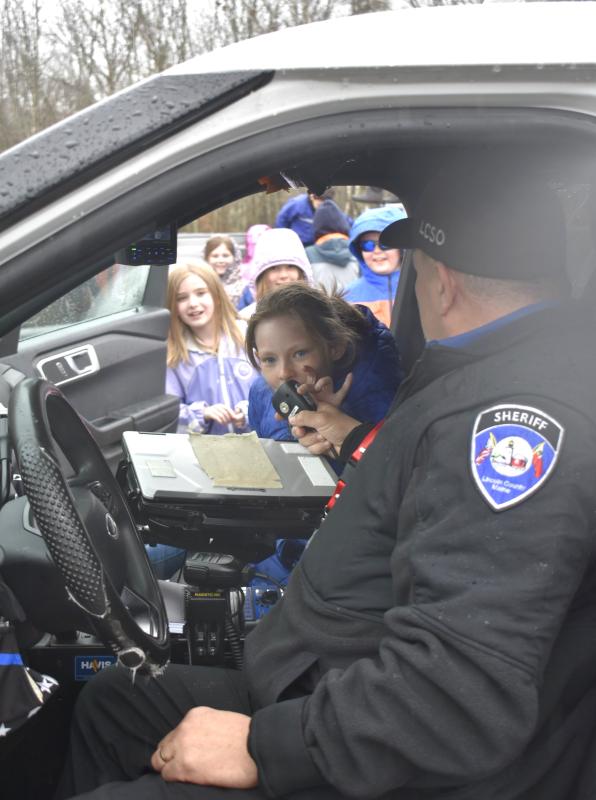 Scott Solorzano from Lincoln County Sheriff's Department let kids use his cruiser’s loudspeaker. FRITZ FREUDENBERGER/Boothbay Register
Scott Solorzano from Lincoln County Sheriff's Department let kids use his cruiser’s loudspeaker. FRITZ FREUDENBERGER/Boothbay Register
 Looking down a pipe model from Brunswick Sewer Department. FRITZ FREUDENBERGER/Boothbay Register
Looking down a pipe model from Brunswick Sewer Department. FRITZ FREUDENBERGER/Boothbay Register
 FRITZ FREUDENBERGER/Boothbay Register
FRITZ FREUDENBERGER/Boothbay Register
 FRITZ FREUDENBERGER/Boothbay Register
FRITZ FREUDENBERGER/Boothbay Register
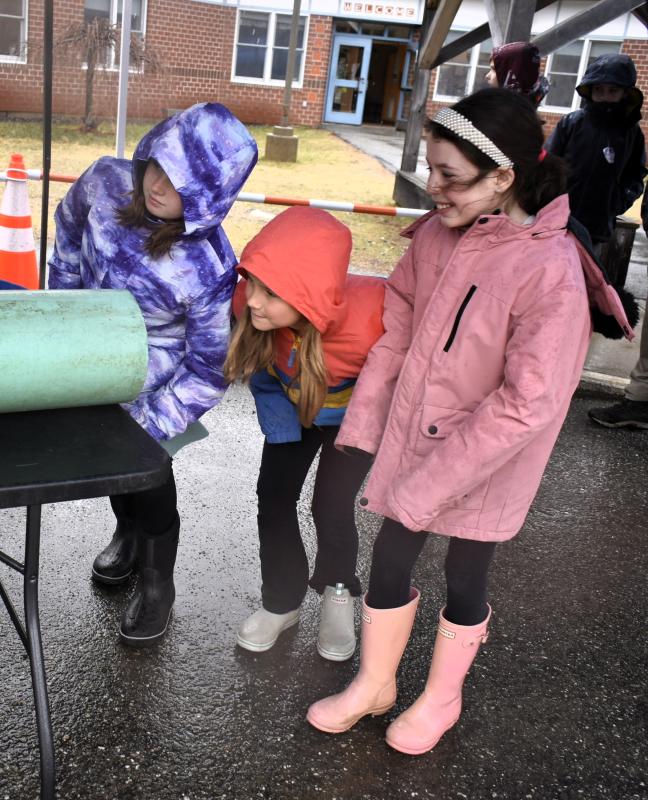 FRITZ FREUDENBERGER/Boothbay Register
FRITZ FREUDENBERGER/Boothbay Register
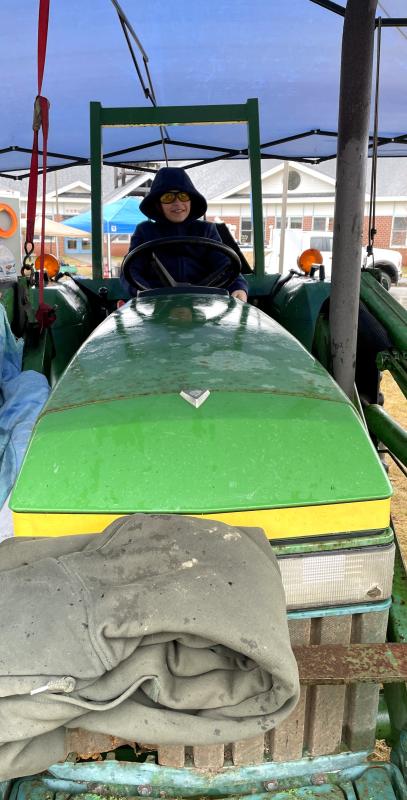 FRITZ FREUDENBERGER/Boothbay Register
FRITZ FREUDENBERGER/Boothbay Register
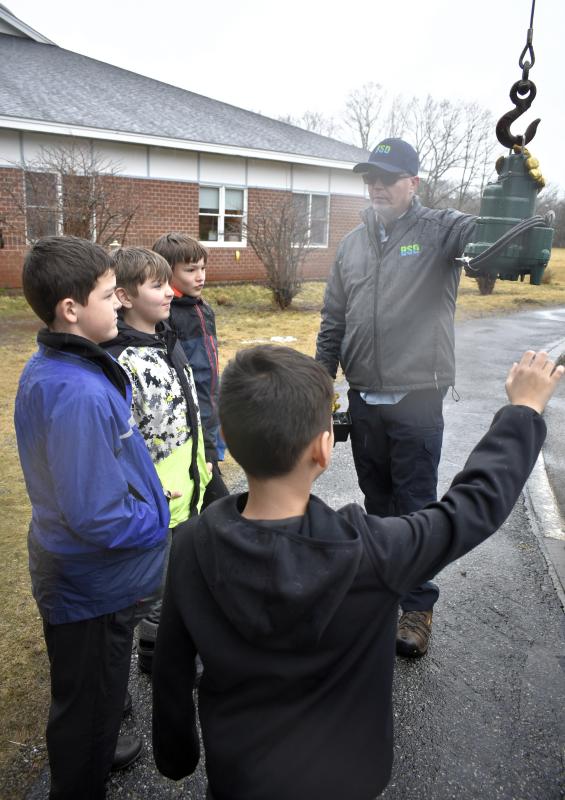 FRITZ FREUDENBERGER/Boothbay Register
FRITZ FREUDENBERGER/Boothbay Register
 FRITZ FREUDENBERGER/Boothbay Register
FRITZ FREUDENBERGER/Boothbay Register
 A student waves from the cockpit of a Coast Guard boat during Edgecomb Eddy’s career day March 29. FRITZ FREUDENBERGER/Boothbay Register
A student waves from the cockpit of a Coast Guard boat during Edgecomb Eddy’s career day March 29. FRITZ FREUDENBERGER/Boothbay Register
 Students learn about sump pumps from Brunswick Sewer Department. FRITZ FREUDENBERGER/Boothbay Register
Students learn about sump pumps from Brunswick Sewer Department. FRITZ FREUDENBERGER/Boothbay Register
 A Maine Bureau of Parks and Lands tractor was a hit. FRITZ FREUDENBERGER/Boothbay Register
A Maine Bureau of Parks and Lands tractor was a hit. FRITZ FREUDENBERGER/Boothbay Register
 The panelists at Edgecomb Eddy School’s career day. FRITZ FREUDENBERGER/Boothbay Register
The panelists at Edgecomb Eddy School’s career day. FRITZ FREUDENBERGER/Boothbay Register
 Scott Solorzano from Lincoln County Sheriff's Department let kids use his cruiser’s loudspeaker. FRITZ FREUDENBERGER/Boothbay Register
Scott Solorzano from Lincoln County Sheriff's Department let kids use his cruiser’s loudspeaker. FRITZ FREUDENBERGER/Boothbay Register
 Looking down a pipe model from Brunswick Sewer Department. FRITZ FREUDENBERGER/Boothbay Register
Looking down a pipe model from Brunswick Sewer Department. FRITZ FREUDENBERGER/Boothbay Register
 FRITZ FREUDENBERGER/Boothbay Register
FRITZ FREUDENBERGER/Boothbay Register
 FRITZ FREUDENBERGER/Boothbay Register
FRITZ FREUDENBERGER/Boothbay Register
 FRITZ FREUDENBERGER/Boothbay Register
FRITZ FREUDENBERGER/Boothbay Register
 FRITZ FREUDENBERGER/Boothbay Register
FRITZ FREUDENBERGER/Boothbay Register
 FRITZ FREUDENBERGER/Boothbay Register
FRITZ FREUDENBERGER/Boothbay Register
 FRITZ FREUDENBERGER/Boothbay Register
FRITZ FREUDENBERGER/Boothbay Register
The Edgecomb Eddy School cafeteria was filled with firefighters, nurses, tradesmen, hairdressers, scientists and even a beekeeper – at least aspiring ones. The school held a career day March 29, featuring a panel of professionals who spoke about their jobs and how they got there.
The event was part of the school’s career education programming, organized by guidance counselor Gary Upham. He said the students had been learning for weeks about different jobs and what it takes to meet career goals, which is part of state curriculum standards starting in preschool.
Upham said some of the students think they are too young to be learning about jobs. However, he said he still wants them to be kids, just prepared early for success.
“As kids, I want them to be kids with knowledge. I want them to be kids with opportunities to think of possibility,” Upham said. “I want those kids who think they can't, that they can. I heard that in the panel. You can, you can, you can. So that's ultimately what I want the parents to hear. Let these kids be kids but let them have fun doing what we're trying to do.”
Nine invited Panelists included professionals from the Coast Guard, Lincoln County Sheriff's Department, the Leadership School at Kieve, Brunswick Sewer Department, Maine Bureau of Parks and Lands and the Boothbay Register.
After the panel, kids got to explore equipment brought in by panelists. Pouring rain deterred no one as kids climbed aboard a Coast Guard boat, “drove” a maintenance tractor, hopped in a police cruiser and learned hands-on about sewer camera inspections and repairs.
Students asked the panelists what it takes to do their jobs, what job they wanted when they were kids and what inspired them to be in their current jobs. The panel had diverse duties and experience, and told the students about winding career paths that didn’t end up how they expected. They passed on lessons about the importance of teamwork, time management and communication.
Among the messages. Don't stop learning after leaving school. From finding new tricks to fix a plumbing leak, how to better communicate with a coworker or formal training offered by their employer, each panelist said they have learned on the job throughout their careers. “What's important about careers is that you learn as you grow, you learn about opportunities,” Upham told students.
Upham said much of the curriculum is helping students learn about themselves, too. He helps students identify their career priorities and, while some are interested in money, most just want to be happy with their work. He also tries to help instill the self-confidence they need to meet their goals.
“How do you make sure that you're safe, you're important to yourself, and you believe in yourself?” he said. “And once you get to that level, the sky's the limit.”












































